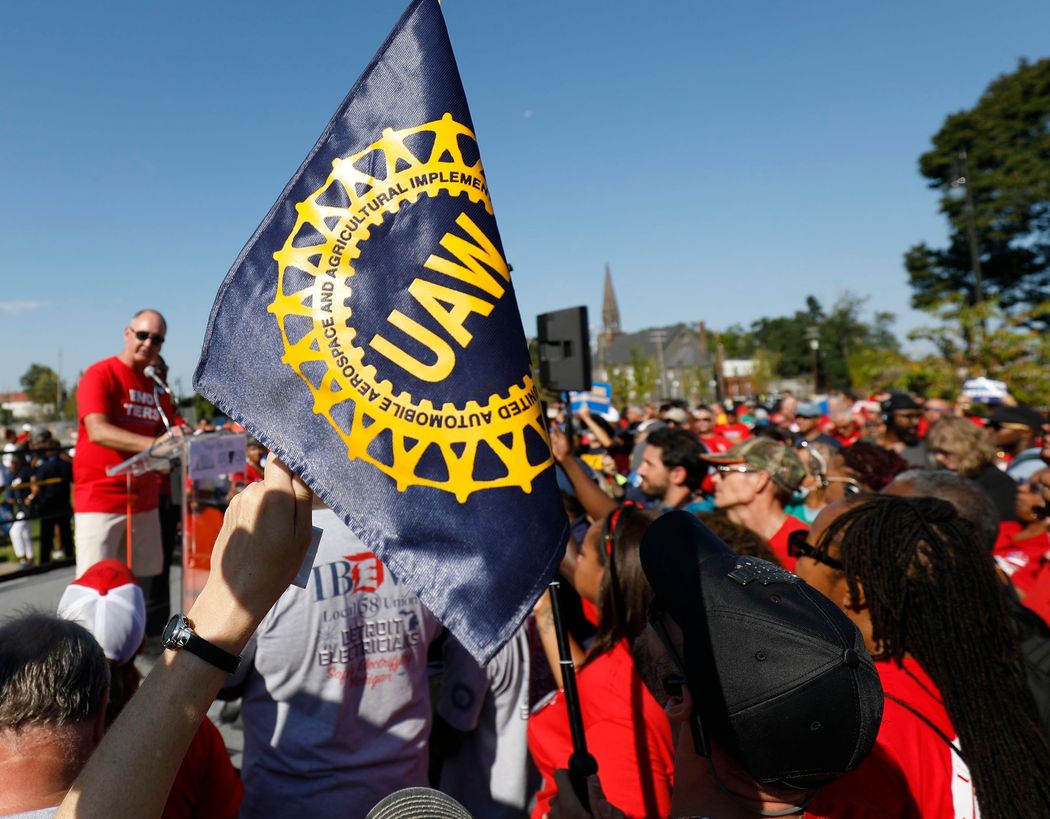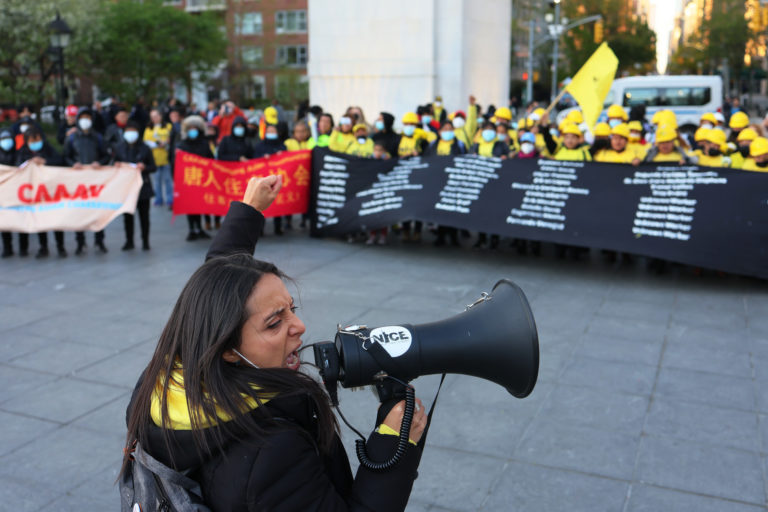
Sunah Chang is a student at Harvard Law School.
In today’s news and commentary: UAW reaches a tentative deal with General Motors, pharmacy workers plan a nationwide walkout, and President Biden issues an executive order on artificial intelligence.
Yesterday, UAW announced a tentative deal with General Motors, putting an end to the historic, six-week strike campaign coordinated by the union. “Like the agreements with Ford and Stellantis, the GM agreement has turned record profits into a record contract,” stated the union.
GM is the last of the Big Three companies to strike a tentative deal with the union, and much of its deal echoes the union’s agreements reached with Ford and Stellantis over the past few days. GM’s deal includes a 25% wage increase across a four-and-a-half year deal with cost of living adjustments and removes two-tier wage systems. The deal also expands the workers who are covered by the UAW contract, bringing in workers at a GM subsidiary called GM Subsystem as well as workers at Ultium Cells, an EV battery joint venture between GM and LG Energy Solution. Because the deals with the Big Three companies are tentative, all three deals will need to be ratified by rank-and-file members before going into effect. Commending UAW’s tentative deal with GM, President Biden issued an official statement, noting, “[t]his historic contract is a testament to the power of unions and collective bargaining to build strong middle-class jobs while helping our most iconic American companies thrive.”
As the UAW celebrates recent victories, pharmacy workers across the nation have just begun to escalate their fight for workplace rights. Employees at chain pharmacies, including Walgreens, CVS, and Rite Aid, have launched a nationwide walkout to protest unsafe working conditions this week. The walkout, dubbed the “Pharmageddon” by organizers, builds upon pharmacy walkouts that occurred last month. The participating pharmacy workers, who have received official support from the American Pharmacists Association, are hopeful that the walkouts will push companies to address chronic and long-standing problems of understaffing and burnout in the industry. At large pharmacy chains, workers, who are already short-staffed, are forced to complete tasks according to strict time-based metrics, which have threatened patient safety and exacerbated pressures for pharmacy workers. These issues reached a tipping point during the COVID-19 pandemic, when frontline pharmacy workers faced added workplace demands and dangers due to amplified healthcare needs. The walkout, which will shed light on the deteriorating workplace conditions at pharmacies across the country, is planned to continue through Wednesday.
At the White House, President Biden unveiled a new executive order that establishes safeguards and guidance around artificial intelligence. Among the wide range of issues that the executive order covers, the executive order addresses the need to support workers who may be harmed by AI due to increased workplace surveillance, bias, and job displacement. In particular, the executive order calls for more studies on the labor-market effects of AI and orders the Secretary of Labor to promulgate principles and best practices to protect employees’ well-being. While the executive order signals a noteworthy push by the White House to address emerging AI-related issues, President Biden emphasized that Congress must also act to pass AI legislation.






Daily News & Commentary
Start your day with our roundup of the latest labor developments. See all
December 22
Worker-friendly legislation enacted in New York; UW Professor wins free speech case; Trucking company ordered to pay $23 million to Teamsters.
December 21
Argentine unions march against labor law reform; WNBA players vote to authorize a strike; and the NLRB prepares to clear its backlog.
December 19
Labor law professors file an amici curiae and the NLRB regains quorum.
December 18
New Jersey adopts disparate impact rules; Teamsters oppose railroad merger; court pauses more shutdown layoffs.
December 17
The TSA suspends a labor union representing 47,000 officers for a second time; the Trump administration seeks to recruit over 1,000 artificial intelligence experts to the federal workforce; and the New York Times reports on the tumultuous changes that U.S. labor relations has seen over the past year.
December 16
Second Circuit affirms dismissal of former collegiate athletes’ antitrust suit; UPS will invest $120 million in truck-unloading robots; Sharon Block argues there are reasons for optimism about labor’s future.